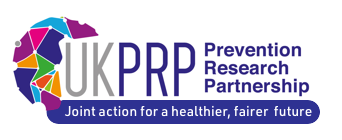Delegates will discuss the role of NICE in the development of new approaches and models of healthcare, including:
- developing guidance around integrated care following the Health and Care Act 2022
- new preventative and personalised models of healthcare being developed as part of the Major Conditions Strategy
- addressing NHS challenges, including recent guidance around the use of virtual wards to support capacity within hospitals
Discussion will consider use of real-world evidence, new approaches to health technology evaluation, and improving patient access to innovative treatments.
Further sessions look at NICE’s future role in improving patient outcomes, tackling health inequalities, providing value for money and safeguarding the use of new technologies.
Relevant developments
NICE Strategy 2021-26 – published in March 2021, outlining four key pillars of their vision:
- rapid, robust and responsive technology evaluation
- guideline recommendations that integrate the latest evidence, practice and technologies in an informative way
- effective uptake of guidance to maximise impact, including collaborating with partners, and monitoring the impact of guidance on health inequalities and patient outcomes
- taking the lead in supporting research, and making use of real world evidence to fill gaps in knowledge and drive access to innovation
Transforming NICE – published in 2022
- aiming to emphasise relevance, timeliness, usability and demonstrable impact while maintaining independence, transparency and rigour
- the plan aims to align with users’ changing needs and address emerging opportunities and challenges in healthcare
NICE real-world evidence framework – published in June 2022, aiming to improve our understanding of health and social care delivery, patient health and experiences, and the effects of interventions on patient and system outcomes in routine settings:
- identifying when real-world data can be used to reduce uncertainties and improve guidance
- clearly describing best practices for planning, conducting and reporting real-world studies to improve the quality and transparency of evidence
Major conditions strategy: case for change and our strategic framework – published by DHSC in August 2023, aiming to address health challenges in England over the next 5 years, focusing on cancer, heart disease, musculoskeletal disorders, mental health, dementia and respiratory diseases
- it acknowledges the changing health landscape, including the rising incidence of multimorbidity
- emphasising the need for an evolving model of care, devolution and integrated care systems
- outlining a pathway from primary prevention to supporting individuals managing major conditions, with a focus on early diagnosis, intervention and treatment
The Innovative Medicines Fund – announced by DHSC in June 2022, designed to fast-track patient access to new and promising medicines to maximise chances of positive treatment outcomes
Life Sciences Vision – the UK Government’s ten-year plan from July 2021 for supporting the life sciences sector, outlining ambitions to:
- further develop the UK’s life sciences infrastructure and create an environment that encourages industry growth and investment
- harness the potential of patient data
- support access to innovation
- use life sciences research to tackle healthcare challenges
Key areas for discussion
Priorities for NICE and maximising the impact of guidelines
- healthcare landscape: key considerations for NICE in light of the move to ICSs and the development of approaches to personalised and preventative care models
- cost efficiency: identifying areas where NICE can help reduce financial pressures on the health service
- flexibility: developing guidelines that can be readily updated in response to developments in technology, best practice, and new and emerging evidence
- adoption: ways for NICE to collaborate with local health services and providers to increase uptake of guidance, looking at potential impacts on care quality and patient outcomes
- patient engagement: working with patient groups and people with lived experience to inform the development of guidelines
- monitoring: examining the adoption of guidance to inform areas for development and improvement in order to maximise impact
Priorities for the real-world evidence framework to drive innovation
- NICE leadership: the role of NICE guidelines in shaping best practice for data use in health and social care
- evidence-based guidelines: the role of evidence in determining regulation that reflects real world practices
- preventative and personalised care models: developing new approaches, the role of guidelines and value for money
- patient safety: how patients can be protected by driving safe innovation, as well as priorities for patient advocacy groups
- health inequalities: assessing the role of NICE guidelines in tackling health inequalities, and identifying areas where they can provide further support
Evaluating health technology
- developing regulations and guidance: evaluating new and emerging innovations in medical devices, such as virtual wards
- AI: approaches for AI use to aid efficiency
- international: assessing how collaboration with international Health Technology Assessment bodies can further inform NICE’s approach to evaluation and solutions to global healthcare challenges
- simplifying evaluation processes: improving the flexibility and adaptability of evaluation methods
- data protection: emphasising safety and reliability in data driven approaches, and applying them to real-world situations
Next steps for innovation in health and social care
- Innovative Medicines Fund: the role of the fund in supporting patient access to new medicines and therapies, and opportunities for this to improve patient experience and outcomes
- industry engagement: the role of NHS-industry collaboration in driving research and innovation, and in improving accessibility to new treatments
- innovation pathways: opportunities for streamlining to improve efficiency and access to innovations
- NHS waiting times: assessing ways that NICE guidelines can reduce pressures and tackle backlogs












